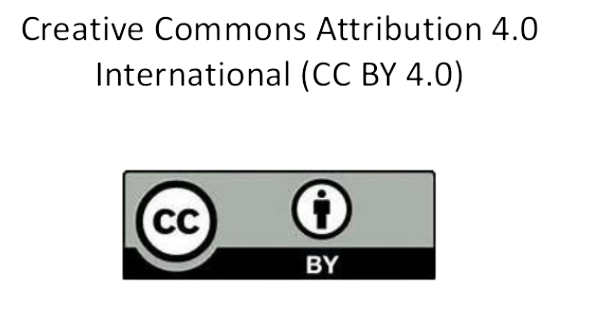Penerapan Metode Cerita Moral dalam Meningkatkan Pemahaman Akhlak Terpuji pada Siswa Kelas III di SD Negeri 1 Besuki Situbondo
DOI:
https://doi.org/10.35719/jptpd.v1i1.18Keywords:
Penelitian Tindakan Kelas, pendidikan Moral, SD Negeri 1 Besuki, Pendidikan karakter, Cerita Moral, Akhlak Terpuji, Pemahaman, SD Negeri 1 Besuki SitubondoAbstract
Penelitian ini bertujuan untuk meningkatkan pemahaman siswa kelas III SD Negeri 1 Besuki mengenai akhlak terpuji melalui penerapan metode cerita moral. Latar belakang penelitian ini adalah rendahnya pemahaman siswa terhadap nilai-nilai akhlak terpuji seperti kejujuran, kesabaran, dan tanggung jawab. Penelitian ini menggunakan pendekatan Penelitian Tindakan Kelas (PTK) yang dilakukan dalam tiga siklus, dimana setiap siklus terdiri dari tahapan perencanaan, pelaksanaan, observasi, dan refleksi. Metode cerita moral dipilih berdasarkan teori konstruktivisme yang menyatakan bahwa pengalaman langsung dan interaksi sosial dapat membantu siswa membangun pemahaman moral mereka. Hasil penelitian menunjukkan peningkatan signifikan dalam pemahaman siswa terhadap akhlak terpuji. Pada siklus pertama, pemahaman siswa masih rendah, namun setelah siklus kedua dan ketiga, terjadi peningkatan signifikan dalam partisipasi dan penerapan nilai-nilai moral dalam kehidupan sehari-hari. Dengan demikian, penerapan metode cerita moral terbukti efektif dalam meningkatkan pemahaman siswa mengenai akhlak terpuji.
This study aims to improve the understanding of third-grade students at SD Negeri 1 Besuki regarding commendable morals through the application of the moral storytelling method. The background of this research is the students' low comprehension of moral values such as honesty, patience, and responsibility. This study employs a Classroom Action Research (CAR) approach conducted in three cycles, with each cycle consisting of the stages of planning, implementation, observation, and reflection. The moral storytelling method was selected based on constructivist theory, which posits that direct experience and social interaction help students develop their moral understanding. The results show a significant improvement in students' understanding of commendable morals. In the first cycle, student comprehension was still low, but after the second and third cycles, there was a substantial increase in participation and the application of moral values in daily life. Thus, the implementation of the moral storytelling method has proven effective in enhancing students' understanding of commendable morals.
References
Arifin, A., & Lestari, T. (2022). Tantangan dalam Implementasi Metode Cerita Moral di Kelas Dasar. Jurnal Pendidikan dan Pembelajaran Inklusif, 8(2), 45-58.
Bruner, J. (2020). The Narrative Construction of Reality. Cambridge: Harvard University Press.
Dewey, J. (2021). Experience and Education. New York: Kappa Delta Pi.
Dewey, J. (1933). How we think: A restatement of the relation of reflective thinking to the educative process. D.C. Heath and Company.
Firdaus, A., & Nugroho, T. (2022). Perkembangan Kognitif Anak Usia Sekolah Dasar: Implikasi untuk Pembelajaran Moral. Jurnal Psikologi Pendidikan, 10(1), 33-47.
Hartanto, R., & Sari, N. (2023). Efektivitas Cerita Moral dalam Pendidikan Karakter di Sekolah Dasar. Jurnal Pendidikan Anak, 11(3), 102-115.
Hasanah, S., & Rizal, M. (2023). Perkembangan Kognitif dan Implikasinya dalam Pembelajaran Moral. Jurnal Psikologi Pendidikan, 12(2), 55-69.
Hasan, A. (2020). Pendidikan Karakter di Sekolah Dasar: Teori dan Praktik. Yogyakarta: Deepublish.
Kemmis, S., & McTaggart, R. (1988). The Action Research Planner. Victoria: Deakin University.
Lickona, T. (2021). Character Matters: How to Help Our Children Develop Good Judgment, Integrity, and Other Essential Virtues. New York: Simon & Schuster.
Piaget, J. (2021). The Psychology of the Child. New York: Basic Books.
Piaget, J. (1977). The Development of Thought: Equilibration of Cognitive Structures. New York: Viking.
Putri, A., & Ardiansyah, B. (2023). Efektivitas Cerita Moral dalam Meningkatkan Pemahaman Akhlaq Siswa SD. Jurnal Pendidikan Anak, 9(4), 150-163.
Putra, Y., & Yuliani, E. (2022). Pendekatan Pendidikan Karakter di Sekolah Dasar: Studi Terbaru. Jurnal Pendidikan Karakter, 13(1), 75-88.
Rachmawati, T., & Susanti, A. (2022). Pendidikan Karakter di Sekolah Dasar: Implementasi dan Tantangan. Jurnal Pendidikan Karakter, 11(2), 22-35.
Santrock, J. W. (2018). Life-Span Development (16th ed.). New York: McGraw-Hill.
Santrock, J. W. (2011). Educational psychology (5th ed.). McGraw-Hill.
Schunk, D. H. (2012). Learning theories: An educational perspective (6th ed.). Pearson.
Susanto, D., & Wahyu, N. (2022). Implementasi Metode Cerita Moral dalam Pembelajaran di Sekolah Dasar. Jurnal Pendidikan dan Inovasi, 15(3), 67-80.
Vygotsky, L. S. (1978). Mind in Society: The Development of Higher Psychological Processes. Cambridge: Harvard University Press.
Woolfolk, A. (2014). Educational psychology (12th ed.). Pearson.
Yuliana, A., & Rina, D. (2023). Implementasi Metode Cerita Moral dalam Kurikulum Sekolah Dasar: Studi Kasus di Beberapa Sekolah. Jurnal Pendidikan dan Inovasi, 12(4), 203-215.
Zimmerman, B. J. (2002). Becoming a self-regulated learner: An overview. Theory into Practice, 41(2), 64-70.
Zubaidah, H., & Hadi, F. (2023). Penggunaan Cerita Moral dalam Pembelajaran Pendidikan Karakter di Sekolah Dasar. Jurnal Pendidikan dan Pembelajaran, 14(2), 88-101.
Downloads
Published
How to Cite
Issue
Section
License
Copyright (c) 2024 JOURNAL OF PEDAGOCICAL AND TEACHER PROFESSIONAL DEVELOPMENT

This work is licensed under a Creative Commons Attribution 4.0 International License.











